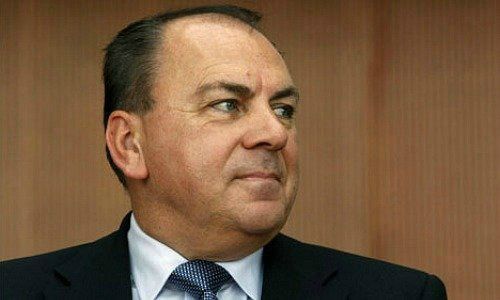UBS focus of private banking is the benchmark for universal banks looking to balance riskier activities against more reliable profits. The comeback of investment banking puts chairman Axel Weber on the back foot.
Axel Weber was supposed to inherit Josef «Joe» Ackermann's job as CEO of Deutsche Bank when the Swiss banker stepped down in 2012. That didn't happen of course: the former Bundesbanker took a non-executive role as chairman of UBS, where he pursued a strategy to dramatically diminish investment banking in favor of banking for the world's wealthy.
Since then, «doing a UBS» or «UBSization» has entered banking lingo to refer to shrinking investment banking and expanding private banking: former European investment banking powerhouse Deutsche Bank is doing it, as is crosstown rival Credit Suisse under Tidjane Thiam.
Faded Luster
At the end of last year, Weber's strategy began losing its luster: investment banking was booming, and UBS was missing out on the traditionally volatile area of fixed income in particular.
The beneficiaries? American investment banks and to a lesser extent European rivals who stuck it out longer and more capably than UBS did in fixed income, like Credit Suisse and Deutsche Bank.
Weber is unperturbed: interest rates globally won't turn as quickly as many people believe – even if the U.S. Federal Reserve has already started hiking, he tells German weekly «Welt am Sonntag» (full article in print edition, in German).
«More than 3 percent at the short end is unlikely. This won't be an environment where traditional fixed income investments are going to become attractive anytime soon,» Weber said.
Party Without Hangover
Never a powerhouse in fixed income like Deutsche, UBS' last push ended with more than $50 billion in write-downs and a government-led rescue package. The 2012 strategy to abandon large parts of the fixed income franchise buried UBS' ambitions.
UBS Chief Executive Sergio Ermotti was sanguine in the interview as he echoed his boss' comments.
The euphoria over investment banking's comeback stands in stark contrast with its returns, Ermotti said. «I'm not exactly impressed when I look at the return on equity. I'm certain that we haven't or aren't missing anything.»
The comments reveal a frustration at UBS that the bank is «missing out» on a boom it doesn't fully want a part of while rivals make a killing – something that weights on UBS' stock price.
More U.S. Staff Than Goldman
Ermotti, who has said that the Swiss bank wants to go to the fixed income party but not be saddled with the hangover said «I'm 100 percent sure that we have the right strategy.»
«It's not about competing with other U.S. investment banks on deal volume. We are the largest private bank in the world and have more employees in the U.S. than Goldman Sachs. Our investment bank allows us to realize synergies with wealth management,» Weber said.
UBS is doing a UBS now more than ever, is the subtext of Weber and Ermotti's comments. Weber, who became chairman as the strategy was being put into place and is nevertheless credited as one its architects, said UBS «mustn't become complacent after the strategy succeeded in the past.»


































